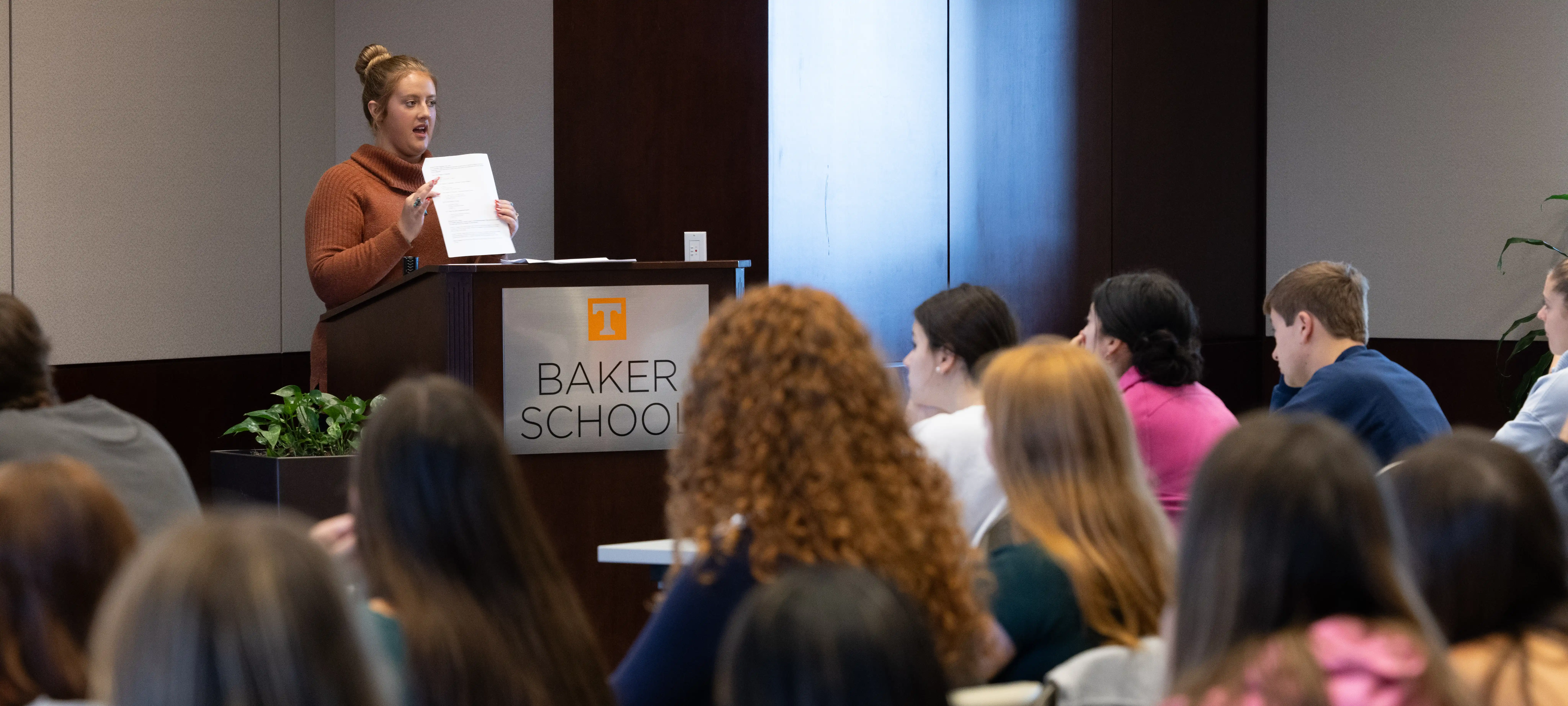Research Enhances Student Experience for Harper

As an undergraduate, Sarah Harper’s connections with the Howard H. Baker Jr. School of Public Policy and Public Affairs (Baker School) allowed her to explore interdisciplinary research projects across campus.
“One of the strengths of the Baker School is its faculty and their connections; they are wide-reaching,” says Harper, a Baker Scholar whose research spanned from policing to education policy to electoral politics and swing states.
Now a graduate student in the Baker School’s Master of Public Administration (MPA) program, the connections Harper made as an undergraduate opened the door to a fellowship from the Women’s Public Leadership Network (WPLN).
Originally from Loudon, Tennessee, Harper was always interested in government and passionate about understanding the policy and administration standpoint behind politics. Throughout her studies, the Baker School allowed her to dive into political research.
As an undergraduate, she worked with Dr. Rachel White, assistant professor in the Department of Educational Leadership and Policy Studies at UT’s College of Education, Health and Human Sciences. White directs the Superintendent Lab, a central hub for data, research, insights, and innovation of school districts’ superintendency. Harper worked on specific national longitudinal superintendent data collection to create a database and a ten-state report on the climate of the superintendency.
Her MPA capstone research project covers pipelines to political involvement and/or elected office for women. It focuses on Georgia being a swing state and women’s representation and involvement in politics in the state. This research overlaps with the work she is doing for her WPLN fellowship. WPLN’s mission is to educate, organize, and inspire women to seek public office and become effective leaders. Each academic year, three young women are selected from colleges across the U.S. As part of the program, they help build the organization’s capacity and assist WPLN’s state partners, who identify, engage, and train women on the ground to seek public office. Harper was interested in the WPLN and its work because it allowed her to gain political knowledge about electoral politics and campaigns without having to affiliate with a campaign.
Harper also serves as a graduate teaching assistant for Josh Dunn, professor and executive director of the Institute of American Civics (IAC) and his Engaging Civically course. Her work with the class is student-facing, but she has found that she enjoys the class itself.
“It’s a good hybrid between civics and political philosophy,” Harper said. “I’ve heard this work before, but seeing the different approaches and views on the topics has been interesting.”
She also believes this is a critical time to learn about civics and that it is easy to forget why we have the rules of civic discourse in the first place. Harper values all the undergraduate research, courses, and work she is now doing as a graduate student and WPLN fellow because she believes that to become a successful public leader, you need to know how the system works.
Harper participated in the MPPA Accelerated Program, which allowed her to graduate with a degree in political science in 2024 while taking graduate courses toward her graduate degree. The four plus one program put her on the fast-track to earning her MPA degree in the spring of 2025. She hopes to remain at UT to attend law school. Long term, with her interests in local government, she wants to work in city and public management. Her goal is to work in academia, but first, she wants to gain experience with boots on the ground.
